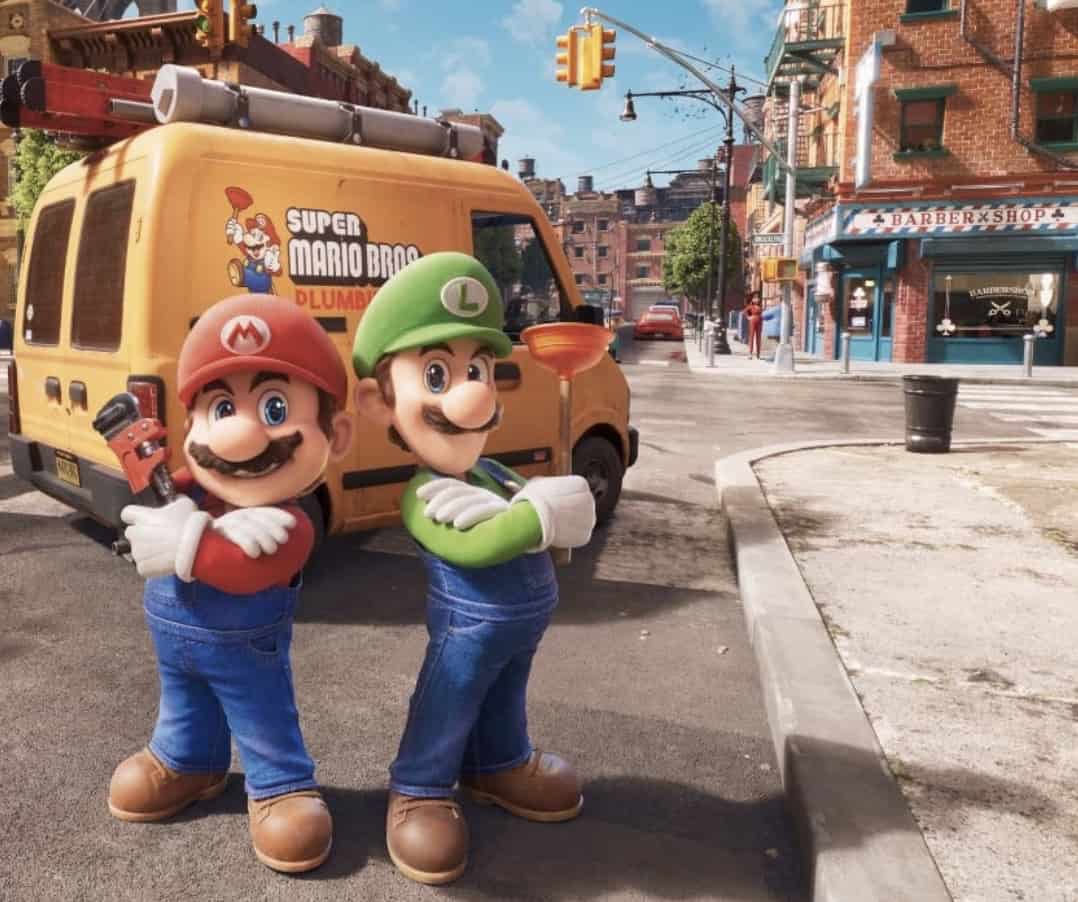Let’s a go! On April 5th, the Super Mario Brothers movie was released, full of Nintendo references and charming humor. The family-friendly film also has something to teach us about three different philosophical ethics embodied in three central characters: Princess Peach, Bowser, and Mario himself.
Princess Peach is, as her name suggests, the leader of the Mushroom Kingdom where we spend most of the film. In her introduction, we learn that her land will soon be under attack by Bowser and his army. Without hesitation, Peach declares that she will help gather an army from other lands in order to save her people who are mostly defenseless.
Her motivation is noble, rooted in her own sense of responsibility for her people. And her selfless actions give her greater standing among her subjects too. They sense that she cares about them, even if it’s not on a personal level, and her own desire to put herself at risk by traveling herself to help her people recruit an army. Later in the film, she even fights on the front lines against Bowser. However, while her motivations are good, they are also somewhat disinterested; she doesn’t seem to have a deep relationship with any of the people in the land. She is first and foremost fulfilling an obligation towards her subjects in the Mushroom Kingdom.
This sort of motivation is akin to Kant’s deontology. The most identifiable tenet of this ethical system is the idea of “categorical imperatives.” One iteration is that one should not treat any person, including oneself, as a means to an end. Rather, every person should be treated as an end to oneself. This is where we get our contemporary notion of human dignity from. In Peach’s position of power, she is working to ensure none of her people are used as means to Bowser’s evil ends. Peach recognizes that she is the leader of what Kant would call “a kingdom of ends.”
By contrast, Bowser’s motivations are very selfish. He is one of the first characters we meet in the film, and he stands tall and menacing, breathing fire as he unprovokedly attacks a race of penguins. He is clearly set up as the film’s villain, though he is more complicated than he might appear. He attacked the penguin race in order to gain a powerful item that he can use to destroy the Mushroom Kingdom. However, he is willing to offer it to Princess Peach if she agrees to marry him.
Bowser’s interests are supremely selfish. He wants to make Princess Peach his own just as much as he wants to be the ruler of the kingdom. His entire display of power is geared towards gaining the hand of the princess. If she refuses his proposal, then he will turn and use his newly acquired weapon to destroy the Mushroom Kingdom. Bowser’s ultimate concern is fulfilling his own desires, no matter the cost.
And here, Bowser leans closer to a more Nichtzean ethic of power. In such a system, the selfish use of power is perfectly acceptable. One might call it more of an amoral system, as argued by Nietzsche in his book Beyond Good and Evil. The goal of human beings is to move beyond what Neitzche calls a “slave ethic,” which upholds values like meekness, humility, and selflessness. Rather, Nietzsche upholds a “master ethic,” emphasizing the individualistic will to power. His ideal man is the ‘superman’, that person who perfectly embodies the master ethic. Nietzsche believed that those with power can choose how to utilize it and aren’t shackled with notions of ‘right’ or ‘wrong’.
Finally, we have our hero, Mario. Near the beginning of the film, he is separated from his brother, Luigi. From then on, Mario’s sole motivation is to reunite with his brother. When he meets Peach, Mario demands that she help him save Luigi. Later on, Mario is outmatched in combat, but he continues to fight because he knows that winning the battle is the only way to help him in his quest.
His familial love is a powerful, personal motivator. Mario is willing to put himself on the line for his brothers, as well as for the others he meets along the way in his adventure. That self-sacrificial love is one of the highest kinds of love.
Here, Mario seems to be leaning towards more of a virtue ethic, which emphasizes the fundamental role of one’s character in the ethical life. Aristotle, one of the fathers of virtue ethics alongside his teacher Plato, writes that the highest good is happiness (‘eudaimonia’) and that all other things are sought after for the sake of this end. Further, he argues that happiness is achieved when we seek to live an excellent life. This excellence is achieved with time and practice through the development of habits.
Mario is trying to be an excellent brother, one might even say a ‘super’ brother. And that goes beyond the simple actions of making sure that Luigi is generally safe or taken care of. Mario goes into the plumbing business with his brother and does what he can to make sure they are successful. When preparing to rescue his brother, Mario trains his body in an obstacle course and in combat, later fighting against Bower’s army to help his brother. Of course, he’s not perfect, but he is trying to move in that direction of being a virtuous brother, even if he doesn’t say it explicitly.
In our own lives, our own motivations are often somewhere in between these three characters. Sometimes, we do what we know to be good more out of duty than out of deep care for those around us. At other points, we choose selfish actions that benefit only us. And, at our best, we are willing to choose to do good for others, even when we have to make sacrifices.
Of course, our choices and situations are not quite so simple. There are times when we will make decisions with mixed motives. The important thing is that we keep trying to purify our motives and continue to respond to the call to serve. Even if we fail or get knocked down, our ceaseless effort to improve is what will make us ‘super’, like Mario.
edited 28 April 2023 at 6:04 AM
Cover Image: The Super Mario Bros. (2023) from IMDB


